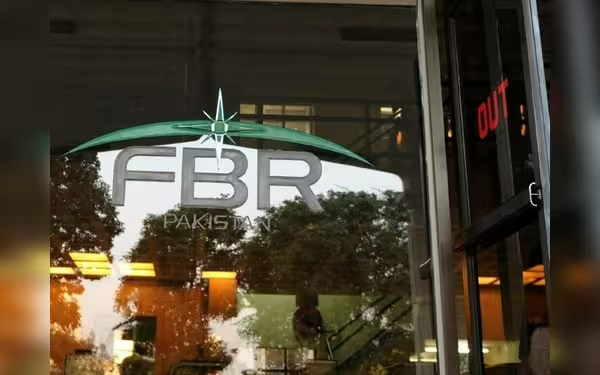Saturday, November 16, 2024 09:55 PM
FBR Launches Working Groups for Customs Reforms
- FBR establishes four working groups for customs efficiency.
- Focus on faceless assessment and anti-smuggling strategies.
- Reorganization aims to enhance transparency and enforcement.
 Image Credits: brecorder
Image Credits: brecorderFBR establishes four working groups to enhance Pakistan Customs efficiency and combat smuggling through targeted reforms.
In a significant move aimed at enhancing the efficiency of the Pakistan Customs Department, the Federal Board of Revenue (FBR) has established four dedicated working groups. This initiative is part of a broader strategy to reform customs operations, ensuring that they are more streamlined and effective in combating smuggling and improving revenue collection.
The newly formed working groups will focus on several key areas. These include faceless assessment, which aims to reduce human interaction in the customs process, thereby minimizing corruption and increasing transparency. Additionally, a centralized examination process will be implemented to ensure that all goods are assessed uniformly, regardless of where they enter the country. The revamping of the clearing agent regime is also on the agenda, which will help in regulating the agents who facilitate the clearance of goods through customs.
Moreover, the working groups will develop an Indus-based anti-smuggling strategy, which is crucial given the geographical and economic significance of the Indus River. The re-organization of the Intelligence and Investigation Customs unit is another critical focus, as it will enhance the department's ability to gather and analyze information related to smuggling activities. Lastly, the re-organization of Customs Enforcement will ensure that enforcement actions are more effective and targeted.
Leading these working groups are experienced officials from within the customs department. The Chief Collector of Customs KP will oversee the faceless assessment, centralized examination, and clearing agent regime initiatives. Meanwhile, Chief Naveed Elahi from the Customs Operations Wing will head the anti-smuggling strategy group. Chief Tariff and Trade Hasan Saqib will lead the re-organization of the Intelligence and Investigation Customs, while the Collector from the Collectorate of Customs Enforcement Karachi will manage the Customs Enforcement re-organization.
All members of these working groups have been instructed to prioritize their new responsibilities alongside their existing duties. They are encouraged to communicate with their team leads promptly to ensure that the reforms are implemented effectively and efficiently.
The establishment of these working groups by the FBR marks a pivotal step towards modernizing the Pakistan Customs Department. By focusing on transparency, efficiency, and targeted enforcement, these reforms have the potential to significantly improve customs operations in the country. As these initiatives unfold, it will be essential for stakeholders to remain engaged and informed, ensuring that the reforms not only meet their objectives but also contribute to a more robust economic environment in Pakistan.













